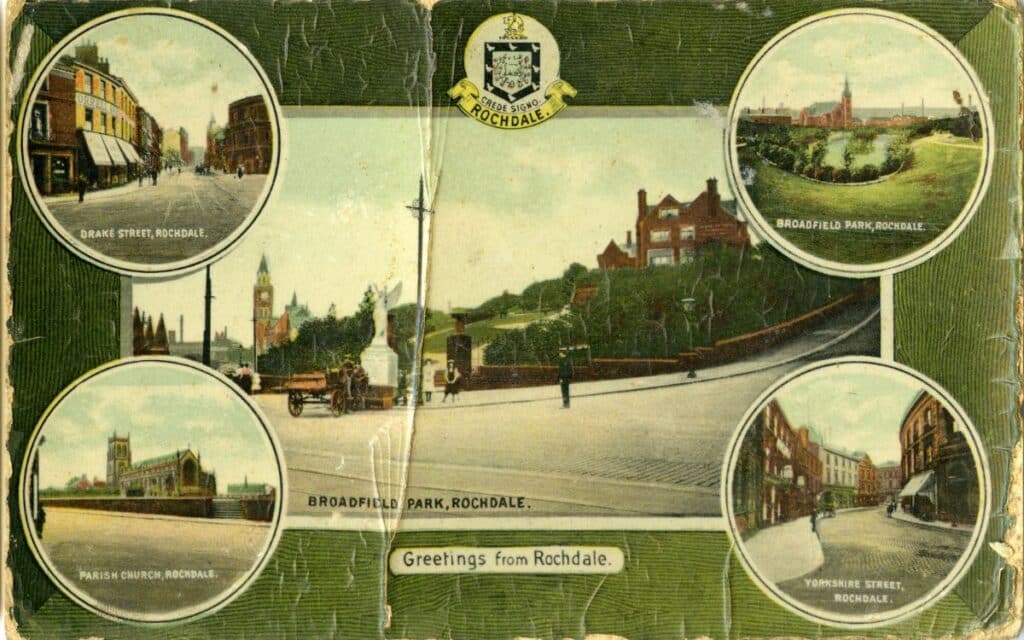Victorian Rochdale’s coroners practiced eerie death superstitions like “The Fate of 3” and unsettling rituals. Gemma Johnson gives us a glimpse into these haunting traditions

There has and always will be superstitions, not just surrounding death, but within our lives as a whole.
They are passed down from generation to generation, I for one have many superstitions that have come directly down from my lovely Auntie Pat.
These included not putting new shoes on an elevated surface such as a table, the absolute terror of breaking a mirror and never turning away people arriving at your door selling heather (yes, I know that one is a bit random but many years ago that was a thing).
By practising certain rituals, we believe it will ward off bad luck, this was especially evident in regard to death and the need to ensure that loved ones pass to spirit safely.
Examples of some of the superstitions surrounding death are opening windows, covering mirrors and placing pennies over the eyes of the dead.
Upon investigating and researching Rochdale, I have uncovered some curious habits and terms used by Victorian Coroners, some of these will likely apply to practice as a whole at that time whereas others were specific to Rochdale.
Rochdale Superstitions
In modern times, the term ‘died by natural causes’ is applied to cases where an individual has passed naturally whether that be of old age or illness, typically where the passing may be expected.
In Georgian and Victorian times, the phrase used was ‘Died by the visitation of God’ meaning that God had opted to take that person to spirit.
People, were often god fearing and so this terminology was thought to reassure the loved ones that their beloved had successfully passed over.
The phrase was used until the late 19th Century.
Cases of suicide were handled in the most unsettling manner with the deceased being subjected to a far from respectful burial. Linking back to faith, suicide was deemed to be a sin and there are instances, in Rochdale, of the Coroner giving a death verdict of ‘Felo de se’ which translated means ‘felon of him/herself’.
Where verdicts like this were recorded, the body would be buried at midnight with no rites of burial being given, even more disturbing was that prior to this a stake would be driven through the body, adding further humiliation and degradation.
The idea of suicide being a crime has long been an issue, I take this opportunity to kindly remind everyone that we should no longer be using the phrase ‘committed suicide’. As a mental health teacher, I will correct each and every person that uses this phrase, I implore you to do the same.
In Rochdale, during the 19th Century, the Coroners noted that there were very few instances of homicide taking place. The leading causes of death were boiler explosions, machinery and quarry accidents.
Hauntings of the Leeds to Manchester Railway
There has long been folklore surrounding the hauntings of the Leeds to Manchester railway which passes directly through Rochdale.
Upon reviewing the records during its construction, it is understandable why this may be the case. In the space of 18 months, there were a total of 41 deaths recorded, all were the result of working directly on the construction of the railway line.
In terms of superstitions, the Coroners of Rochdale had a very unusual superstition which was called ‘The Fate of 3’. Over the years, they had noted that deaths had a connection of three.
The Fate of 3
Examples included three deaths one after the other of the same natural cause or the same accident, three deaths where the people had the same surname, first name or initials.
As they were recorded on the Coroners Rolls, the pattern became very obvious. They deemed it to be fate and that fate had connected itself to death to create a pattern, it was believed it to be an indication of God’s work with the three being ‘the Father, the Son and the Holy Spirit’. By being part of ‘The Fate of 3’ it was viewed as a message from God, and it was the right time for the person to pass.
There were many examples of ‘The Fate of 3’ being present on the records.
Strangely in the vast majority of cases the ‘3’ had no connection to each other in terms of places of residence, work or family; their paths had never crossed until the fateful day they passed where they were then destined to be next to each other in the death records for eternity.
What are your thoughts about Rochdale’s Curious Deaths and Superstitions? Tell us in the comments section below!







